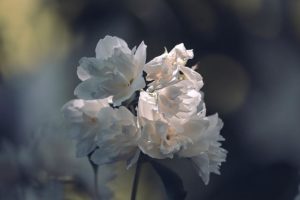You have no items in your cart. Want to get some nice things?
Go shopping
“I am not ruining them. I am saving them for you to remember when you’ll forget everything like Abba jee.” My ten-year-old retorted when he was told not to pluck flowers from our backyard. He has no recollection of Abba jee, my grandfather; he met him only once when he was barely three. But he has inherited the fear I have long harboured in my heart. It lurks in my every misstep: every time I misplace my keys, forget my handbag, or fail to recall a celebrity’s name. Every slip-up is a fierce reminder: it’s all downhill from here. We are believers – something we remind ourselves five times a day. Our faith firmly anchored in the impermanence of our precarious lives. Regardless, this world is precious to us – we cling to our understanding of it. Dementia hurts because it alienates us from the world we cognize and love dearly.
The first time I noticed a change in Abba jee was when he mispronounced my name. A minor gaffe, not worthy of mention, I shook off all doubts. Gradually, blunders and confusion became his way of life. Often, he dialled a number but forgot who he was calling, forgot his phone number, went to the bank to withdraw his pension but couldn’t recall his account number, and the list of things lost or forgotten kept growing. But there was nothing out of the ordinary about these incidences. We chalked them up to aging. As the list grew, so did his frustration: anxiety giving way to paranoia. One day, someone stole his Rolex watch; another day, his gold wedding ring went missing. Things disappeared and then magically reappeared at unexpected corners of the house. An air of mistrust permeated the household. Servants regarded each other with suspicion, always ready to point the finger at someone else.
Then he lost his property’s documents, the last straw that confirmed his fear – everyone’s after his money. When he moved, multiple keys jingled in his pocket. He had bolted and locked all his valuables: check books, property documents, his favourite shirts, pants and hats, pens, watches, cereal, fruits, twigs, and rocks he gathered from his lawn. He wouldn’t leave his belongings unguarded, not even for a minute.
He was a loving father and grandfather, at once thrifty and generous: he never wasted a penny but never hesitated to spend on his kids. We did not know how to deal with this stranger who had taken his place. We lost him or maybe he lost us, not immediately, but gradually – one memory at a time as if someone was deleting our existence from his hard drive.
Perhaps he had sensed the transition his mind was going through. He was trying to tell me something on my last visit, and it was hard to comprehend him. At that moment, he had an epiphany. In slow, broken sentences, he expressed his confusion: “I feel I don’t say what’s on my mind and what I want to say. I mean, I try but what I say is not what I mean. Do you understand?” I nodded unknowingly. I thought it was simply a matter of articulation. Everyday inability to find suitable words to express your feelings precisely – a condition commonly described in cliché phrases like “at a loss for words.” But I didn’t know then that precision was the least of his worries; he was more concerned about the disconnect between his thoughts and expressions.
Now when I replay the conversation in my mind, it takes me down the rabbit hole: are dementia patients aware of their cognitive disability? Do they understand that this world, as they have come to understand it, is losing its meaning for them? That their reality is not universal, that they are alone in the new order they have been thrown into. Every day, we manage our fear of losing someone or something precious, but how does it feel to lose (your) self?
*
I took the flowers from my son. The familiar scent of jasmine filled my nostrils, and I breathed it in all at once. I rubbed its petals between my palms to absorb its softness. I touched my son’s hair, and it felt like jasmine. I drew him closer and hugged him, never wanting to let go, neither him nor this moment, at least not right away when it’s still fresh in my hippocampus.
Aneeka Usman
Aneeka Usman is a writer, a teacher, a realtor, and a mom from Chattanooga TN. She earned her master's degree in English Literature from the University of Chattanooga. Currently, she teaches first-year college writing at Dalton State College. In her writings, she broods over life's injustices and celebrates the resilience of the human spirit.




